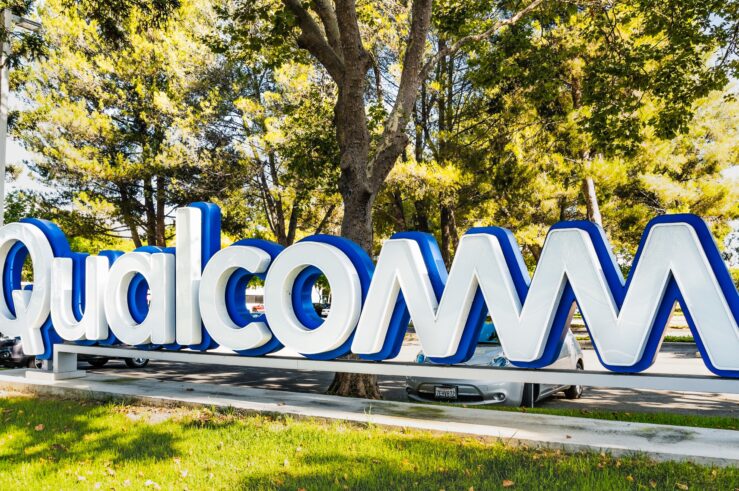Showing archive for: “FTC”
Vertical Mergers: Fast Food, Folklore, and Fake News
In the Federal Trade Commission’s recent hearings on competition policy in the 21st century, Georgetown professor Steven Salop urged greater scrutiny of vertical mergers. He argued that regulators should be skeptical of the claim that vertical integration tends to produce efficiencies that can enhance consumer welfare. In his presentation to the FTC, Professor Salop provided ... Vertical Mergers: Fast Food, Folklore, and Fake News
What’s the Harm of Targeted Ads on Children’s Content Anyway?
The FTC’s recent YouTube settlement and $170 million fine related to charges that YouTube violated the Children’s Online Privacy Protection Act (COPPA) has the issue of targeted advertising back in the news. With an upcoming FTC workshop and COPPA Rule Review looming, it’s worth looking at this case in more detail and reconsidering COPPA’s 2013 ... What’s the Harm of Targeted Ads on Children’s Content Anyway?
The District Court’s FTC v. Qualcomm Decision Rests on Impermissible Inferences and Should Be Reversed
Last week the International Center for Law & Economics (ICLE) and twelve noted law and economics scholars filed an amicus brief in the Ninth Circuit in FTC v. Qualcomm, in support of appellant (Qualcomm) and urging reversal of the district court’s decision. The brief was authored by Geoffrey A. Manne, President & founder of ICLE, and ... The District Court’s FTC v. Qualcomm Decision Rests on Impermissible Inferences and Should Be Reversed
In FTC v. Qualcomm, Judge Koh Gets Lost in the Weeds
In his latest book, Tyler Cowen calls big business an “American anti-hero”. Cowen argues that the growing animosity towards successful technology firms is to a large extent unwarranted. After all, these companies have generated tremendous prosperity and jobs. Though it is less known to the public than its Silicon Valley counterparts, Qualcomm perfectly fits the ... In FTC v. Qualcomm, Judge Koh Gets Lost in the Weeds
Separation without a Breakup
[This post is the fourth in an ongoing symposium on “Should We Break Up Big Tech?“that features analysis and opinion from various perspectives.] [This post is authored by Pallavi Guniganti, editor of Global Competition Review.] Start with the assumption that there is a problem The European Commission and Austria’s Federal Competition Authority are investigating Amazon ... Separation without a Breakup
Should Patent Hold-Out Concerns Trump Patent Hold-Up Misgivings?
Over the last few years competition authorities in the US and elsewhere have repeatedly warned about the risk of patent hold-up in the licensing of Standard Essential Patents (SEPs). Concerns about such risks were front and center in the recent FTC case against Qualcomm, where the Court ultimately concluded that Qualcomm had used a series ... Should Patent Hold-Out Concerns Trump Patent Hold-Up Misgivings?
FTC v. Qualcomm: A Case of Regulatory Capture?
There is little doubt that the decision in May 2019 by the Northern District of California in FTC v. Qualcomm is of historical importance. Unless reversed or modified on appeal, the decision would require that the lead innovator behind 3G and 4G smartphone technology renegotiate hundreds of existing licenses with device producers and offer new ... FTC v. Qualcomm: A Case of Regulatory Capture?
The Third Circuit’s Oberdorf v. Amazon opinion offers a good approach to reining in the worst abuses of Section 230
[Note: A group of 50 academics and 27 organizations, including both myself and ICLE, recently released a statement of principles for lawmakers to consider in discussions of Section 230.] In a remarkable ruling issued earlier this month, the Third Circuit Court of Appeals held in Oberdorf v. Amazon that, under Pennsylvania products liability law, Amazon ... The Third Circuit’s Oberdorf v. Amazon opinion offers a good approach to reining in the worst abuses of Section 230
The FTC’s Errors in 1-800 Contacts
In an amicus brief filed last Friday, a diverse group of antitrust scholars joined the Washington Legal Foundation in urging the U.S. Court of Appeals for the Second Circuit to vacate the Federal Trade Commission’s misguided 1-800 Contacts decision. Reasoning that 1-800’s settlements of trademark disputes were “inherently suspect,” the FTC condemned the settlements under ... The FTC’s Errors in 1-800 Contacts
Balancing competition and innovation in the drug industry: An evaluation of current proposals.
Last week the Senate Judiciary Committee held a hearing, Intellectual Property and the Price of Prescription Drugs: Balancing Innovation and Competition, that explored whether changes to the pharmaceutical patent process could help lower drug prices. The committee’s goal was to evaluate various legislative proposals that might facilitate the entry of cheaper generic drugs, while also ... Balancing competition and innovation in the drug industry: An evaluation of current proposals.
A Bargaining Model v. Reality in FTC v. Qualcomm: A Reply to Kattan & Muris
Introduction In a recent article[1] Joe Kattan and Tim Muris (K&M) criticize our article[2] on the predictive power of bargaining models in antitrust, in which we used two recent applications to explore implications for uses of bargaining models in courts and antitrust agencies moving forward. Like other theoretical models used to predict competitive effects, complex bargaining models ... A Bargaining Model v. Reality in FTC v. Qualcomm: A Reply to Kattan & Muris
An Evidentiary Cornerstone of the FTC’s Antitrust Case Against Qualcomm May Have Rested on Manipulated Data
The courtroom trial in the Federal Trade Commission’s (FTC’s) antitrust case against Qualcomm ended in January with a promise from the judge in the case, Judge Lucy Koh, to issue a ruling as quickly as possible — caveated by her acknowledgement that the case is complicated and the evidence voluminous. Well, things have only gotten more ... An Evidentiary Cornerstone of the FTC’s Antitrust Case Against Qualcomm May Have Rested on Manipulated Data






